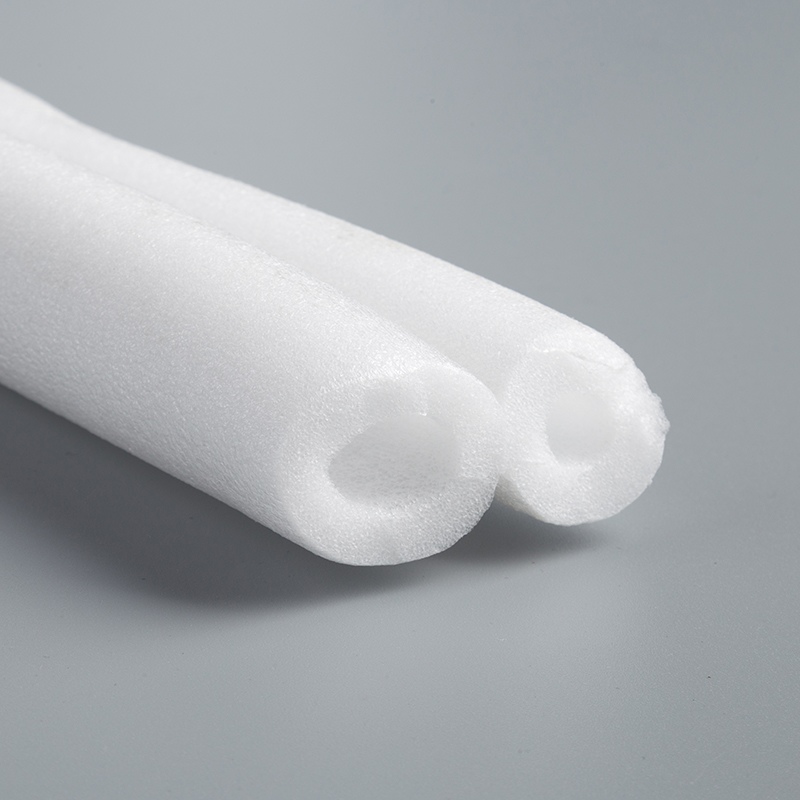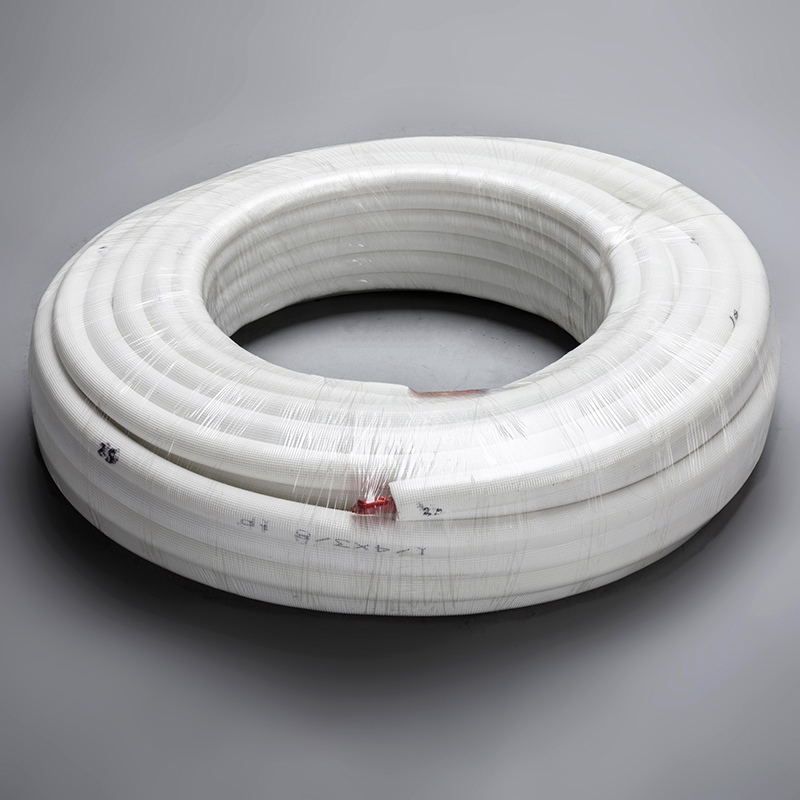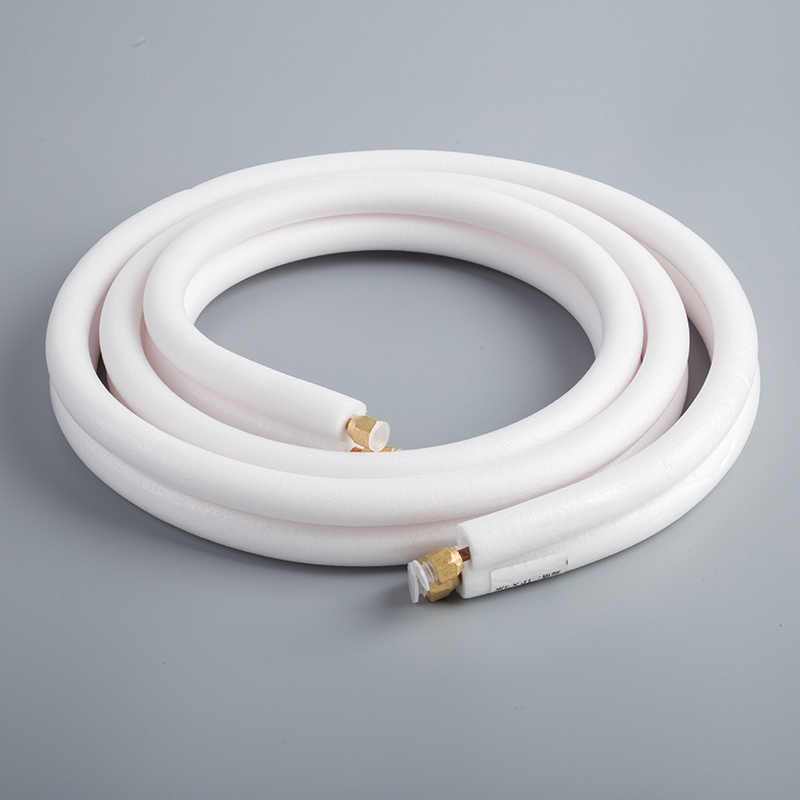Investigate the Technological Advancements in 1/4 3/8 Twin Copper Pipe Coils

1/4 and 3/8 twin copper pipe coils play a vital role across various industries. These coils find applications in construction, automotive, and electronics sectors. Technological advancements have transformed manufacturing processes significantly. Precision engineering enhances the accuracy of production. Automation increases efficiency while reducing costs. Sustainability practices improve environmental impact. This blog will investigate the technological advancements in 1/4 3/8 twin copper pipe coils manufacturing through themes of precision, automation, and sustainability.
Investigate the technological advancements in 1/4 3/8 twin copper pipe coils manufacturing

Precision engineering in copper coil production
Role of CNC machining
CNC machining revolutionizes the production of copper coils. This technology utilizes computer-controlled machines to shape materials with high precision. Manufacturers achieve intricate designs that meet specific requirements. The high plasticity of copper allows for easy shaping into various forms. CNC Machining Copper Parts serve as a prime example of this process, offering flexibility and accuracy.
Advantages of CNC machining include:
High precision in dimensions
Ability to produce complex shapes
Consistency across multiple units
These benefits enhance the overall quality of twin copper pipe coils. Industries rely on this technology to ensure that products meet stringent standards.
Benefits of laser cutting
Laser cutting stands out as another significant advancement in manufacturing processes. This method employs focused laser beams to cut through materials with exceptional accuracy. Laser cutting reduces waste and improves efficiency during production.
Key benefits include:
Clean edges without burrs
Minimal thermal distortion
Fast processing speeds
Manufacturers can create precise cuts, which enhances the performance and aesthetics of copper coils. The combination of CNC machining and laser cutting leads to superior quality products.
Advanced materials and coatings
Enhancing durability
The use of advanced materials plays a crucial role in improving the durability of copper coils. Manufacturers incorporate specialized alloys or treatments that strengthen the material properties. These enhancements allow for better performance under various conditions.
Common methods for enhancing durability include:
Alloying with other metals
Applying protective coatings
Such improvements extend the lifespan of twin copper pipe coils, making them suitable for demanding applications.
Improving corrosion resistance
Corrosion poses a significant threat to metal products, including copper pipes. Manufacturers address this issue by applying advanced coatings that resist environmental factors. These coatings protect against moisture, chemicals, and other corrosive elements.
Popular coating options include:
Epoxy coatings
Polyurethane finishes
These protective measures ensure that twin copper pipe coils maintain their integrity over time, reducing maintenance costs for users.
Innovations in welding technology
Laser welding applications
Welding technology has evolved significantly with innovations such as laser welding. This technique uses concentrated light energy to join metal parts together effectively. Laser welding offers several advantages over traditional methods.
Benefits include:
Reduced heat input
Increased joint strength
Faster processing times
This method improves the overall quality and reliability of welded joints in twin copper pipe coils.
TIG welding improvements
TIG (Tungsten Inert Gas) welding also sees advancements that enhance its effectiveness in producing strong welds. This process involves using a non-consumable tungsten electrode along with an inert gas shield to protect the weld area from contamination.
Improvements in TIG welding involve:
Enhanced control over heat input
Better penetration into base metals
Higher-quality welds
These enhancements lead to stronger connections between components, ensuring longevity and reliability in applications involving twin copper pipe coils.
Automation and sustainability in manufacturing

Integration of robotics in production
Robotics integration transforms the production landscape for copper coils. Manufacturers deploy robots to perform repetitive tasks with precision. This technology reduces labor costs significantly.
Benefits of robotics include:
Decreased need for manual labor
Enhanced safety in hazardous environments
Consistent quality in production
Production rates increase as robots operate continuously without fatigue. Automated systems streamline workflows, allowing manufacturers to produce larger coil sizes efficiently. Improved metal quality results from precise robotic handling.
Implementation of Industry 4.0 principles
Industry 4.0 principles revolutionize manufacturing processes through digital transformation. The Internet of Things (IoT) plays a critical role in real-time monitoring of production lines.
Key features of IoT applications include:
Continuous data collection from machines
Instant feedback on performance metrics
Predictive maintenance alerts to prevent downtime
Smart manufacturing practices enhance operational efficiency further. These practices utilize data analytics to optimize processes and reduce waste.
Examples of smart manufacturing benefits:
Increased flexibility in production schedules
Enhanced decision-making based on real-time data
Improved resource allocation throughout the supply chain
Sustainability practices in copper coil production
Sustainability remains a priority within the copper coil industry. Manufacturers adopt various practices to minimize environmental impact while maintaining productivity.
Recycling scrap copper serves as a primary method for promoting sustainability. This process conserves resources and reduces waste generated during production.
Advantages of recycling include:
Lower energy consumption compared to new copper extraction
Reduced landfill contributions from scrap materials
Economic benefits through cost savings on raw materials
Energy-efficient production methods also contribute significantly to sustainability efforts. Manufacturers implement technologies that lower energy usage during the manufacturing process.
Strategies for energy efficiency encompass:
Upgrading machinery with energy-saving features
Utilizing renewable energy sources where feasible
Automation combined with sustainable practices leads to substantial improvements in overall efficiency and product quality.
Future trends in copper pipe coil production
Emerging technologies in manufacturing
Manufacturers continuously seek innovative methods to enhance copper coil production. New materials and processes emerge regularly, driving efficiency and quality. One notable advancement involves the development of copper coil material with high elongation and productivity. This material allows for greater flexibility during manufacturing while maintaining strength.
Key emerging technologies include:
Advanced alloy compositions
Smart sensors for real-time monitoring
Additive manufacturing techniques
These technologies enable manufacturers to produce coils that meet specific industry demands. Increased automation through robotics further enhances production capabilities. Robots perform tasks with precision, reducing human error and improving safety.
Predictions for industry growth
Industry experts predict significant growth in the copper coil sector over the next decade. Rising demand across various applications fuels this expansion. The construction and automotive industries particularly drive this need for high-quality copper coils.
Factors influencing growth include:
Increased investments in infrastructure projects
Growing emphasis on energy-efficient solutions
Expanding markets for electronic devices
Sustainability practices will play a crucial role in shaping future developments. Manufacturers will focus on eco-friendly processes that minimize waste and conserve resources. Companies adopting these practices will likely gain a competitive edge.
"Innovation leads to improved productivity and sustainability."
This statement reflects the ongoing commitment within the industry to embrace change. As technology evolves, so does the potential for enhanced performance in copper pipe coil production.
Technological advancements in precision, automation, and sustainability shape the future of copper coil manufacturing. Precision engineering enhances product quality. Automation increases production efficiency while reducing costs. Sustainable practices promote environmental responsibility.
Continued innovation remains essential for meeting industry demands. Companies must explore new materials and processes to improve performance. Collaboration with technology firms can drive further advancements in functionality and efficiency.
"Innovation leads to improved productivity and sustainability." Embracing change will ensure a thriving future in copper coil production.
See Also
Exploring Tomorrow's Innovations: Twin Copper Pipe Coils in Building
Uncover Cutting-Edge Techniques for Producing Copper Pipe Coils
Revolutionizing Construction: The Future of Copper Pipe Coils


